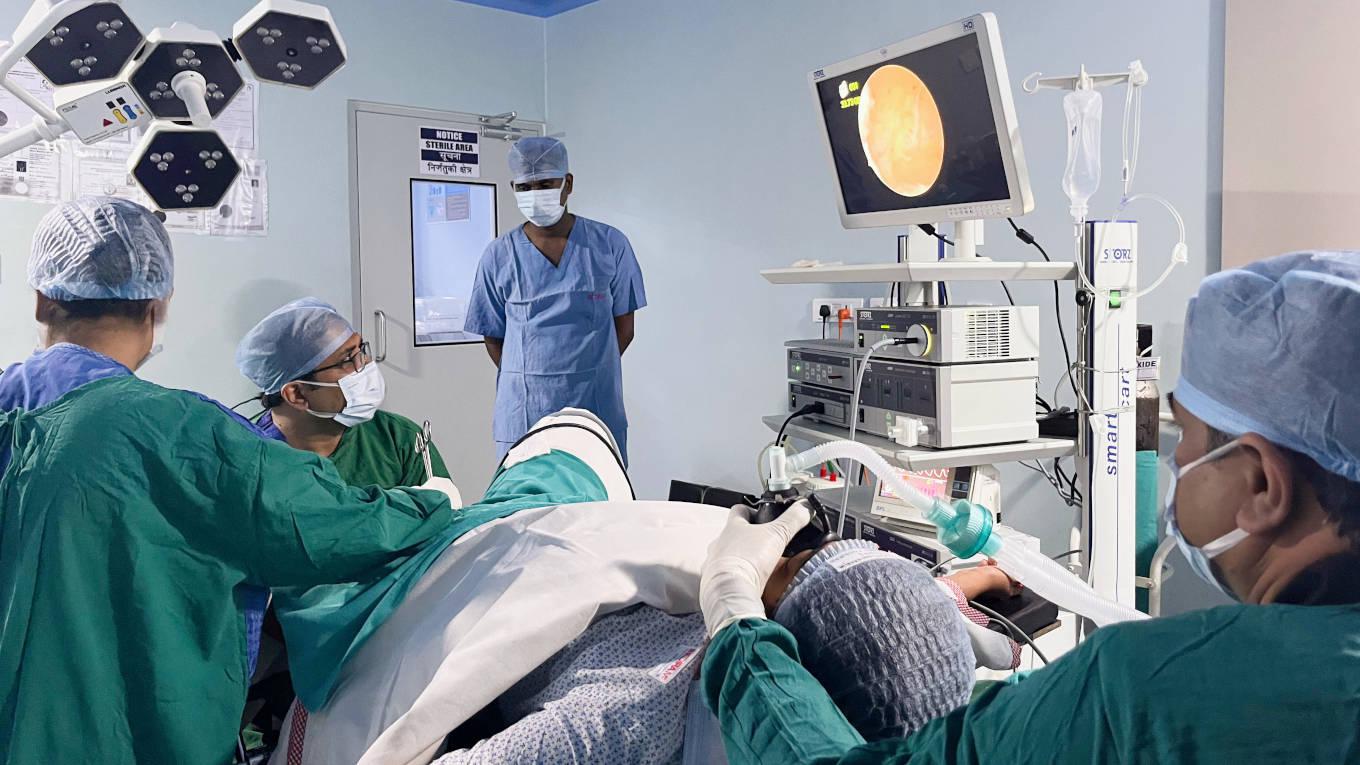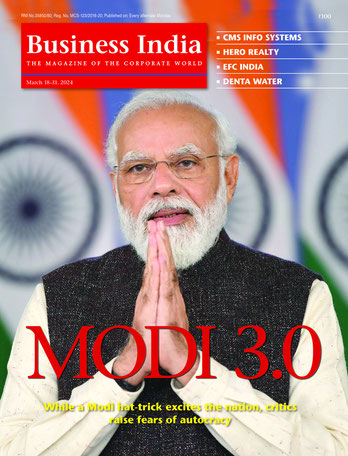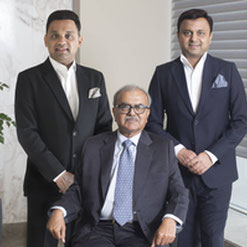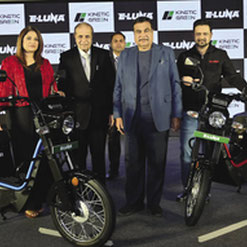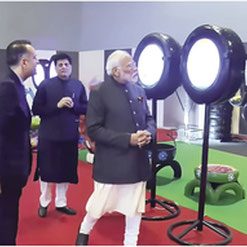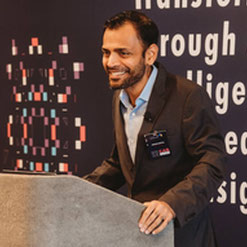-
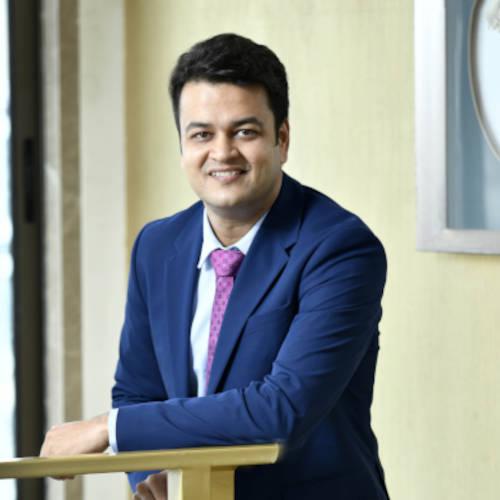
Murdia: breaking the infertility shackles
Driven by a quest to address the fundamental issue of infertility, Murdia founded one of the country’s first sperm banks and Indira Infertility Clinic & Research Centre (IICRC) – an infertility check-up and diagnostic clinic in Udaipur – in 1988. That was almost ten years after his research paper was published.
“In 2011, Nitiz Murdia, my brother, and I joined our father and Indira IVF was born in Udaipur. When more couples started to visit Udaipur from across the country it was evident that the organisation needs to close in on the people, instead of the other way round. Right from the start, affordable treatment using state-of-the-art technology was what we at Indira were seized with. The second Indira IVF centre was inaugurated in 2014 in Pune, and we had inaugurated the 105th centre this year at Cuttack,” adds Kshitiz.
Changing lifestyles
“Advanced technologies have been crucial in attaining our one lakh milestone. We have deployed the best-in-class closed working chambers, electronic witnessing, micro fluidics, advanced incubators, and lab care alarm systems that have helped couples conceive in the least possible number of cycles. We are also working with artificial intelligence (AI) and machine learning (ML) software to further ease the process for our patients,” says Nitiz Murdia – Director & co-founder of Indira IVF, addressing how technology has been pivotal for the milestone.
“We also offer counselling and facilities for egg and sperm freezing that is proving a boon, for several young men and women delay family planning till their early forties,” adds Nitiz who in 2019 got TA Associates, a global equity firm from the US, to invest a minority stake of 34.8 per cent in the organisation.
“Changing lifestyles and increasingly stress-induced environments have impacted the Indian population, affecting metros and Tier II and III markets. We see significant unfulfilled demand for IVF treatment, as it has the ability to make a lasting positive impact on the lives of millions of families. TA partnered with the management team at Indira IVF to provide additional support and resources to accelerate growth plans in India and international markets. We work closely with the Indira IVF team, planning, reviewing and advising basis analyses of the global markets. We aim to make Indira IVF synonymous with success and fertility across the southeast Asia market,” discloses Dhiraj Poddar, Head of TA Associates Advisory Pvt Ltd and an MD at TA.
One of the foundational pillars of Indira IVF is taking accessibility to the patients’ doorstep. “Another challenge we faced was assurance. Once people are spending in the process of IVF cycles, they begin to expect certain results and successful conception. Back when Indira IVF began, success rates were around 30-35 per cent across the country. Now, we have been consistently touching 74 per cent (monthly average) clinical success rates. India is a cost-conscious market but our skill, technology, and success rates have motivated couples throughout the nation to turn to IVF,” says Kshitiz who uses a systems-driven approach.
“We do not depend on star-doctor culture or referrals for our patients. It’s the brand that’s running at the forefront and has gained the trust of patients by giving standard treatment to all. Our doctors are young, driven and they follow a strict structure of protocols for the treatments across all our centres. We are very fond of technology and are constantly looking to add new cutting-edge technology to make IVF treatments cost-effective and safe.”
-
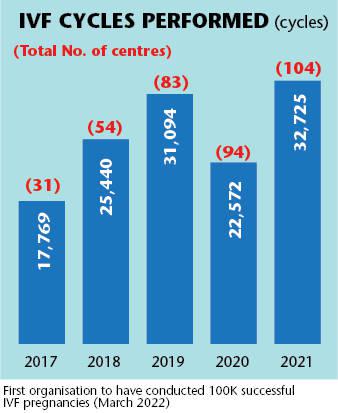
“We are witnessing rapidly shifting lifestyles that can potentially impact fertility such as delaying childbearing, getting married at a later stage, smoking, pollution, alcohol, etc. The couples who come to us are usually between the age of 32-35 and they start facing challenges in achieving pregnancy due to these factors,” says Kshitiz.
Given the lifestyle changes, both females and males have been experiencing a steep decline in fertility, especially in women since the quality and quantity of their eggs start to reduce rapidly post the age of 35. This concept is also recommended for cancer patients, who can preserve their eggs before radiotherapy and can later have the chance of having a child.
So how is Indira IVF busting the entrenched myths present in India? The biggest impediment in this regard has been the lack of awareness about fertility-related issues and almost zero understanding of infertility treatments that were available. People are definitely more aware in the metros, but in the smaller cities, the problem of infertility is still considered a female disease and they are hesitant to even seek treatment.
Over the last decade, to address this deep-rooted issue, Indira IVF has implemented the ‘Nisantanta Bharat Chhodo’ campaign that has held over 2,141 free infertility awareness camps across India in 24 states and has educated more than 65,000 couples so far.
In India, around 2-2.5 lakh IVF cycles are performed every year. The fertility segment in the country was expected to grow by approximately 20 per cent in the last five years, according to ‘Call to Action’, a report by Ernst & Young (EY). “The market looks quite promising and it does have in store the potential to do about 5-6 lakh IVF cycles. About 10-15 per cent of the country’s population are facing fertility issues and the fertility rate for India for 2021 has been 2.179 births per woman, which is a 0.95 per cent decline from 2020. However, it’s all about making ART (assisted reproductive technology) and IVF facilities come in more proximity to people and generating more awareness on infertility.”
As per a study conducted by EY in 2015, Call for Action, (the latest report available) the following have been highlighted: 10-15 per cent married couples in India are infertile and nearly 27.5 million couples who are actively seeking children suffer from infertility. Only 1 per cent infertile couples in India seek treatment, there is a geographical skew in the distribution of infertility centres. Approximately 100,000 IVF cycles were performed in India and the market is predicted to grow at a CAGR of 20 per cent so India could therefore perform about 260,000 IVF cycles a year
Now, in the case with Indira IVF, it performed 22,572 cycles from January to December 2020 and 32,723 cycles during same period in 2021. Last year, due to the pandemic, revenues and expansion activities got hit. On the revenue front, the IVF cycle package vary from R1.5-R1.8 lakh but Indira charges similar rates across the country unlike others in the same space. “The overall plan is to double it by FY26 (at least $200 million) and expand its footprint to 150 clinics,” adds Kshitiz. “Now, with the gradual increase in awareness and increased availability of advanced treatment options, more such couples have started coming forward and hence there is huge growth potential here.”
In terms of revenue, Indira IVF has seen a 63 per cent CAGR (FY15 to FY20) The net profits observed during FY18 and FY19 are R72 crore and R127 crore respectively while the employee costs account for 9-10 per cent of sales whereas the material costs account for 11-12 per cent. “We do not have any debt commitment and are cash rich, which gives the organisation the flexibility to expand rapidly in the current scenario. Our EBITDA has grown more than 100 per cent since FY2015. The IVF industry five-year CAGR is at 20 per cent while Indira IVF is at 2x (cycle growth) to 3x (revenue growth) of the industry,” observes Kshitiz.
-
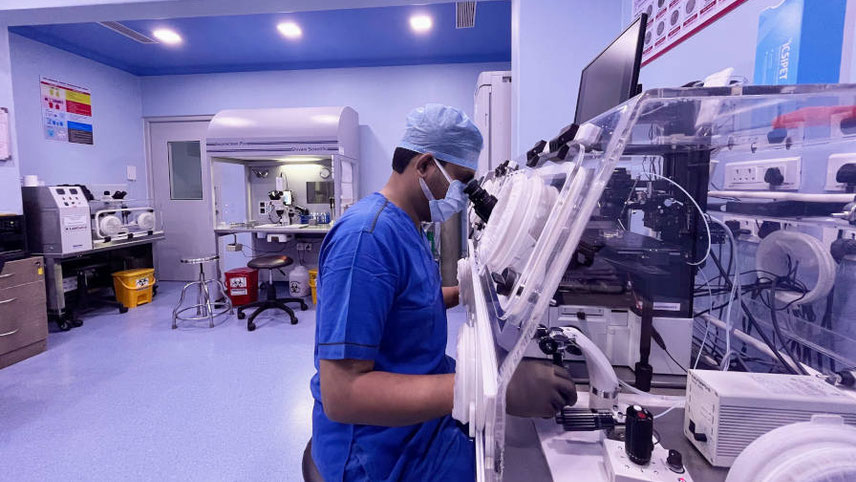
World class technology enables Indira IVF to achieve its goals
Overseas turf
“Indira IVF is bent on taking its facilities and offerings beyond our shores. The technology interfaces and standardised processes have rendered infertility procedures way more affordable to couples seeking parenthood. With technology crutches, we also managed to marry convenience with compliance geared to fetching unique outcomes. Going forward, we would like to further build on deep technology and bolster objective machine-based results using AI in IVF. We will enter the SAARC countries of Nepal and Bangladesh and additionally venture into South-Asian countries like Indonesia, the Philippines, and Vietnam. Presently, potential candidates are being trained at the Indira Fertility Academy where gynaecologists and embryologists are trained and certified. Our institute is certified by the MERCK Foundation of Egypt and therefore we keep hosting and training international aspirants in the field of embryology. We ensure and cement synergy between organisations, doctors, embryologists, and practitioners who aspire to be leaders in the IVF space locally and globally,” explains Kshitiz.
According to an internal assessment, close to over 100 patients per month visit Indira’s India hub centre from Bangladesh each day seeking IVF treatment. The number is great when it comes to Dhaka and greater Bangladesh as a catchment for catering to the larger market needs. A similar influx of patients is observed from Nepal although daily numbers are a little less. This is why Indira is almost on the verge of opening up its first two international centres in Dhaka and Kathmandu over the next few months.
The IVF sector in India has been swiftly progressing, allowing the required opportunities for growth and development. “Indira is a cash-rich company with a sound partner and we do not require additional funds to manage our current growth rate of 63 per cent CAGR. However, as an ever-evolving organisation, we have a sense of the market, understand the market context and are continuously accessing all possible fundraising opportunities that include IPO as well,” concludes Kshitiz who, looking at the current trends and expansions in place adds that “we do not anticipate any such requirements at least for the next 2 years”.
